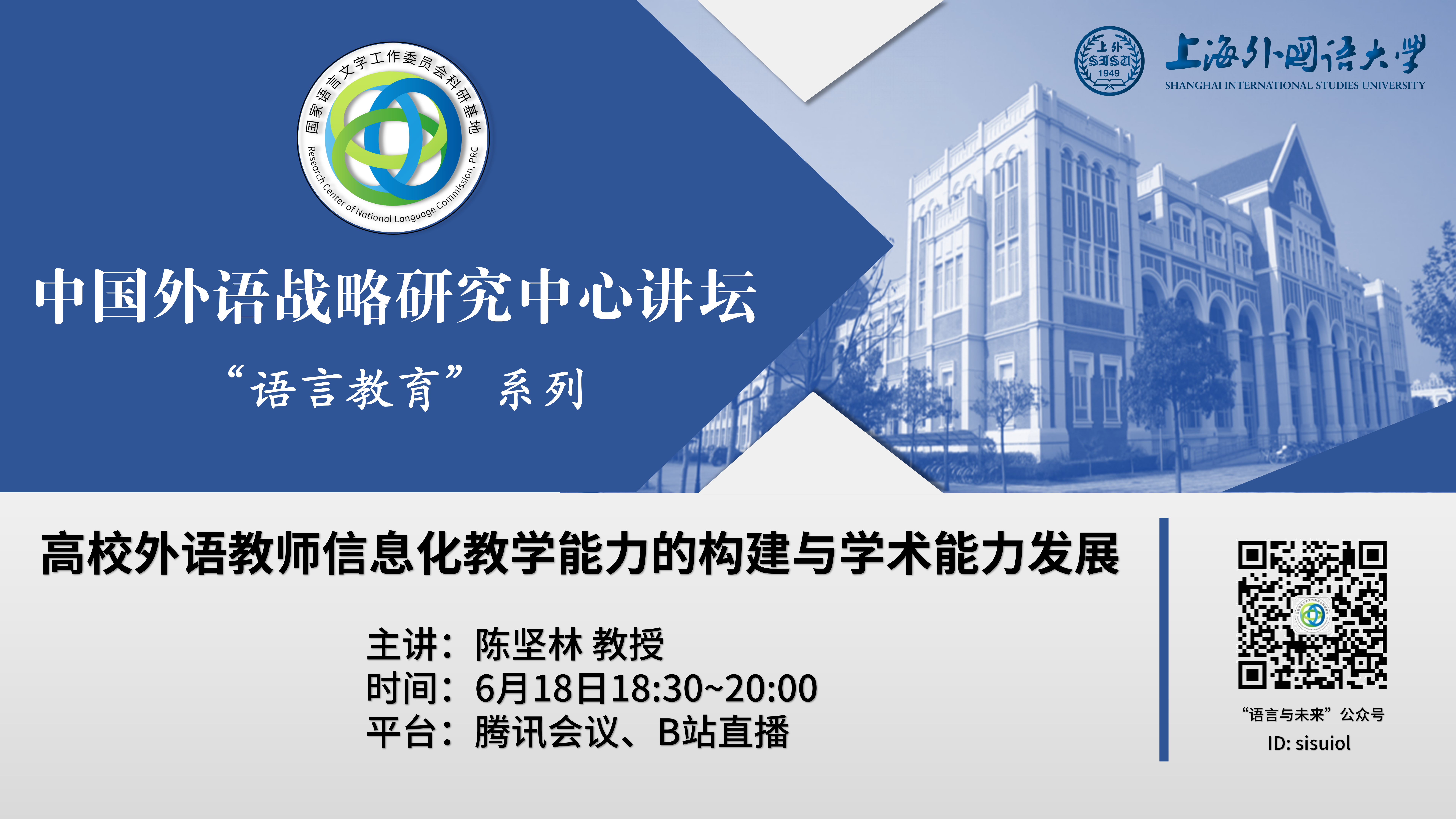
本讲座主要讨论人工智能时代外语教师的发展问题,涉及三个方面的话题:(1)外语教育信息化发展进程;(2)国家层面的政策导向;(3)信息化外语教学能的构建与学术能力发展。整个讲座将从当前疫情环境下线上线下混合式教学设计的视角展开,结合智慧教学和深度学习的实践,探究如何构建与发展外语教师信息化教学能力与学术能力,以适应新的外语教学生态。
获取更多与本讲座相关的详细信息,敬请关注中国外语战略研究中心公众号“语言与未来”(ID: sisuiol)的微信推送。
新闻报道


本讲座主要讨论人工智能时代外语教师的发展问题,涉及三个方面的话题:(1)外语教育信息化发展进程;(2)国家层面的政策导向;(3)信息化外语教学能的构建与学术能力发展。整个讲座将从当前疫情环境下线上线下混合式教学设计的视角展开,结合智慧教学和深度学习的实践,探究如何构建与发展外语教师信息化教学能力与学术能力,以适应新的外语教学生态。
获取更多与本讲座相关的详细信息,敬请关注中国外语战略研究中心公众号“语言与未来”(ID: sisuiol)的微信推送。
新闻报道

在本次讲座中,陈硕教授将结合自己研究项目从“为什么要跨学科研究”,“如何进行跨学科研究”以及“如何在学科间展开有建设性的对话”三方面展开讨论。
新闻报道
上外法学院“四史”学习教育系列活动
新闻报道
文可安邦,文以载道。公文是一种工具,具有鲜明的政策性、法定的权威性、严格的规范性和很强的实用性,在行政管理工作中发挥着重要作用。公文写作是公职人员的基本功,公文素养是公职人员必备的素养。通过此门课程的学习,旨在帮助事业单位行政管理人员掌握公文的定义,公文写作的原则和要求;熟悉“请示、批复、报告、通知、函、纪要”六类常用公文的写法;熟知并会运用2012年7月1日起施行的《党政机关公文处理工作条例》;了解公文质量评价标准,努力形成短、实、新的优良文风。
直接扫描以下二维码进入会议

新闻报道

本期研究生学术训练营活动以金融科技与财务管理前沿理论与方法为主题展开。主要分为以下几个模块:科研论文选题与写作、市政公司财务管理研究、实证会计研究、实证资本市场研究、公司金融前沿研究。由系统的论文写作构架开始到具体公司财务相关研究内容的层层推进,旨在让高校研究生了解公司前沿财务系列研究方法,对相关领域的学术研究与写作有更深层次的见解。
活动形式:高端学术讲座、工作坊、学术沙龙等
活动主要对象:本校在读研究生、青年学者,欢迎兄弟高校师生参加!
本期内容提要:本场讲座将讲解科研选题的思路与方法,并结合最新科研论文的具体例子深入阐述如何寻找具体的研究话题。还将进一步结合中国的制度场景探讨中国问题的关注点与思考角度。最后对论文写作提出一些建议。
新闻报道
新闻报道
新闻报道
新闻报道
回顾上海改革开放将近40年的历史,通过若干改革中的重要事件,透析背后的干事精神,是全国党校系统第一个以改革开放为主题的专题课,2016年9月正式并投入上海市委党校教学主体班次使用。截止2018年3月,共承担了上海本地以及北京、贵州、辽宁、黑龙江、广东、陕西、江苏、浙江、安徽、河北、云南、新疆建设兵团等10多个省市区近100多个干部培训班次的教学任务,培训学员将近9000人。接待了包括中组部、中央党校、国家行政学院在内的全国各地数十批领导和同行视察、参观、学习。2017年8月,入选中组部首批“全国干部教育培训好课程”,入选“全国干部教育培训精品库”。
新闻报道
新闻报道